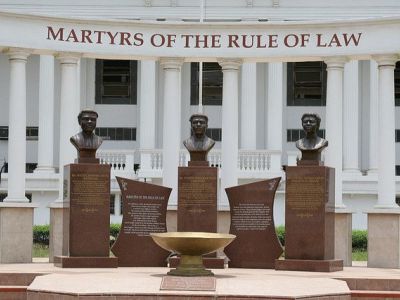Dual citizens can now occupy these public offices; Supreme Court significant inroad on citizenship
Specifically, the apex court held that sections 16(2)(a) and 16(2)(h)-(l) of the Act are unconstitutional, having been enacted contrary to Article 289(2) of the 1992 Constitution.

The Supreme Court of Ghana has declared portions of the Citizenship Act, 2000 (Act 591) as unconstitutional.
In the suit filed by private legal practitioner, Bright Okyere-Adjekum, the apex court held that sections 16(2)(a) and 16(2)(h)-(l) of the Act are unconstitutional, having been enacted contrary to Article 289(2) of the 1992 Constitution.
The said Article 289(2) of the constitution states;
This Constitution shall not be amended by an Act of Parliament or altered, whether directly or indirectly, unless
- the sole purpose of the Act is to amend this Constitution; and
- the Act has been passed in accordance with this Chapter.
Per this significant judgment, holders of dual citizenship can now occupy those positions as outlined under those sections;
(2) Without prejudice to Article 94(2)(a) of the Constitution, no citizen of Ghana shall qualify to be
(a) Chief Justice and Justices of the Supreme Court;
(h) Commissioner, Value Added Tax Service;
(i) Director-General, Prisons Service;
(j) Chief Fire Officer;
(k) Chief Director of a Ministry;
l) the rank of a Colonel in the Army or its equivalent in the other security services.


